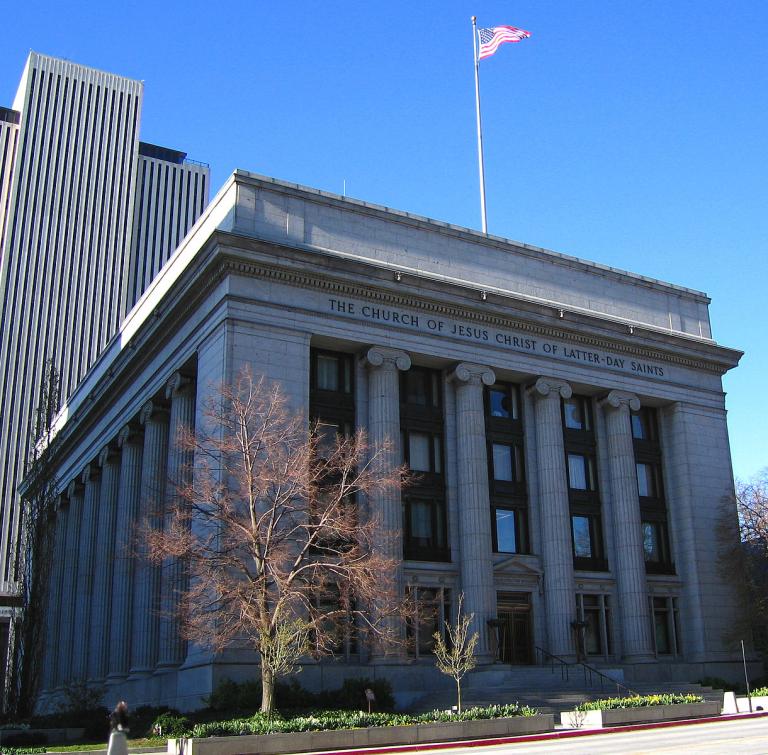
As I’ve noted here before, I can think of no real reason not to ordain women — except for the simple and (to me, entirely sufficient) reason that the Lord has not authorized us to do so. Women are typically just as intelligent and just as competent — if not more so, in many regards — as men commonly are, and at least as committed, on average, to the Lord and the Gospel.
But nobody has a “right” to receive the priesthood. Not women, not men.
Being the right to act in the name of God in certain particular regards, the priesthood is God’s to confer or to withhold.
A commenter on my blog has been arguing that it is unjust to restrict priesthood to males. If, however, there is no “right” to priesthood ordination, that argument seems to lose much of its force. It’s also not unjust that, so far as I know, Warren Buffet hasn’t included me in his will. It’s not unjust that my wife receives far more invitations to lunch than I do.
This critic contends that we no more need revelation to ordain women than we did to ordain blacks of African descent. However, the leaders of the Church of Jesus Christ of Latter-day Saints believed that they did require such revelation before ordaining blacks, and, in June 1978, they believed themselves to have received it. Here, for example is a quotation about it from Adventures of a Church Historian, the memoirs of the late Dr. Leonard J. Arrington:
“Those in attendance said that as he began his earnest prayer, they suddenly realized that it was not Kimball’s prayer, but the Lord speaking through him. A revelation was being declared. Kimball himself realized that the words were not his but the Lord’s. During that prayer some of the Twelve—at least two who have said so publicly—were transported into a celestial atmosphere, saw a divine presence and the figures of former presidents of the church . . . smiling to indicate their approval and sanction. Others acknowleged the voice of the Lord coming, as with the prophet Elijah, ‘through the still, small voice.’ The voice of the Spirit followed their earnest search for wisdom and understanding.
“At the end of the heavenly manifestation, Kimball, weeping for joy, confronted the [other members of the First Presidency and the Council of the Twelve], many of them also sobbing, and asked if they sustained this heavenly instruction. Embracing, all nodded vigorously and jubilantly their sanction. There had been a startling and commanding revelation from God—an ineffable experience.
“Two of the apostles present described the experience as a ‘day of Pentecost’ similar to the one in the Kirtland Temple on April 6, 1836, the day of its dedication. They saw a heavenly personage and heard heavenly music. To the temple-clothed members, the gathering, incredible and without compare, was the greatest singular event of their lives. Those I talked with wept as they spoke of it. All were certain they had witnessed a revelation from God.”
(See also “Elder Bruce R. McConkie’s Witness of the 1978 Revelation on the Priesthood.”)
This critic also argues that we don’t need revelation to ordain women any more than we need specific revelation to be kind or to be good parents to our children. But such things as the latter are matters of general revelation, accessible to and known by Buddhists and Hindus and Sikhs and animists and irreligious people and atheists as well as Latter-day Saints. This is simple conscience. If, however, there is anything at all that’s uniquely within the province of divine special revelation, the conferral of the Lord’s priesthood would certainly seem to be a candidate for inclusion within that set.
Of course, revelation is the issue. Elsewhere, this critic describes my view as holding that we must wait for our leaders to decide for us what is right. But she has that wrong.
Her view seems to be that the Church is merely governed by committees, for whose decisions we borrow the language of religion — including such words as revelation and inspiration — although it’s all really just a matter of ordinary human politics.
By contrast, and with many, many other faithful Latter-day Saints, I believe that our leaders are uniquely called and chosen to seek out and to discover (for the Church as a whole) what the Lord wants, and I believe that what the Lord wants is, yes, right. That’s, in my view, a presupposition that’s essential to genuine Mormonism. And I’m confident, not only on general principle but from what I’ve studied in Mormon history and from personal interactions with them, that the leaders of the Church themselves hold the same belief. They do not feel that the Church is there for them to take in any direction they like, but, instead, that they are bound to obey what the Lord dictates.
If I didn’t hold this view, the Church of Jesus Christ of Latter-day Saints would have little interest for me.
Posted from Newport Beach, California











